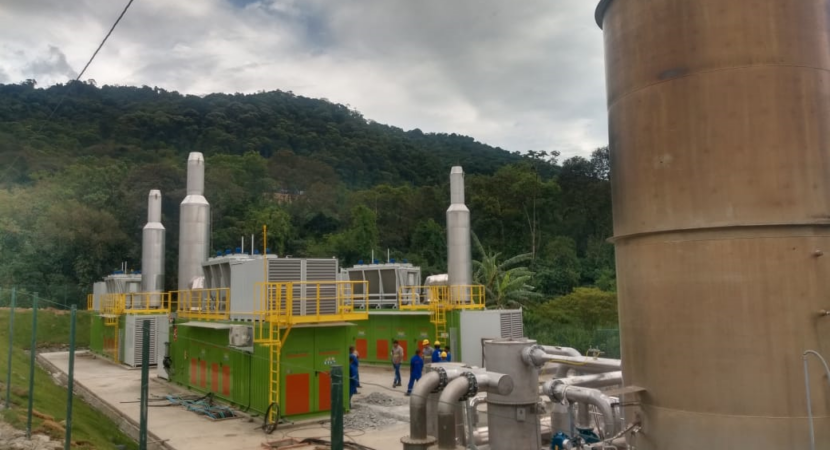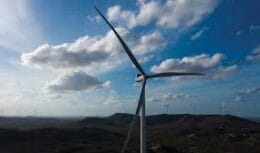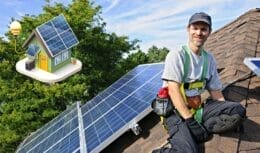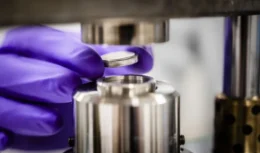
Of the 83 plants in the distributed generation program planned by Vivo throughout Brazil, 21 are already in operation. Together, they already supply 7.450 consumer units of the company and produce 187.289 megawatt-hours/year.
Vivo, the country's largest telecommunications company, is committed to sustainable development and 100% renewable energy consumption, and last month opened its first distributed biogas generation plant in the state of São Paulo in Santos. Built in partnership with Grupo Gera, the plant is installed in an area of 1.490 square meters, next to the Terrestre Ambiental landfill.
Read also
- Petrobras reaches a historic record for importing liquefied natural gas (LNG), with the purchase of more than 40 million cubic meters of the input in a single day!
- Federal Institute of Rio de Janeiro (IFRJ) opens selection process for 1.764 vacancies in free technical courses in oil and gas, work safety, mechanics, IT and much more!
- First energy capacity reserve auction held in Brazil may be annulled due to competition under unequal conditions
- Job openings open today (04/01) to work at an ethanol plant
- Itaipu hydroelectric plant reaches 66,3 million MWh, enough energy to supply the planet Earth for 19 hours, Brazil for a month and seven days and Paraguay for two years and 11 months!
Vivo's initiative is part of the company's strategy to expand its own production of energy from renewable sources. According to the company, of the 83 plants in the distributed generation program planned by the company throughout Brazil, 21 are already in operation, in different regions of the country and with different partners, producing energy from solar, water or biogas sources. Together, they already supply 7.450 consumer units of the company and produce 187.289 megawatt-hours/year. Another 62 plants will be implemented by Vivo in 2022.
Vivo's biogas plant, in São Paulo, generated 49 jobs during construction
The Terrestre Ambiental landfill plant will use between 2.500 and 5.000 Nm³/h (normal cubic meter per hour) of biogas with a high methane content (approximately 50% in its composition) to generate electricity and carbon credits.
The initiative allows the biogas from the landfill, which was not being used before and was emitted directly into the atmosphere, to be directed to these processes that start with the burning of biogas, and have as a final product, in addition to water vapor, carbon dioxide, a gas approximately 21 times less polluting than methane.
The venture generated 49 jobs during construction and will have 20 jobs during the plant's operation phase.
20.850 megawatts-hour/year will be produced and injected into the energy in the CPFL Piratininga distribution company's network, energy that will supply the consumption of more than a thousand Vivo units, such as stores, offices, antennas and transmission equipment, located in the area of concession serviced by the distributor.
Vivo's energy consumption has been fully renewable since November 2018
Vivo's energy consumption, the largest telecommunications company in Brazil, has been fully renewable since November 2018, when the company moved from a scenario with consumption of 26% of energy from renewable sources - obtained both in the free market and in distributed generation – for 100%, through the acquisition of energy certificates, I-RECs (International Renewable Energy Certificates), from wind sources, for the remainder of electricity consumption.
Acquiring the certificates allowed Vivo to bring forward by 12 years its fully renewable consumption target, which was set for 2030. This also helped Vivo to reduce its carbon dioxide emissions by 70%. CO2 compared to 2015, and enabled the company to make an important advance in neutralizing greenhouse gas emissions. Since 2019, Vivo is also a carbon neutral company.
Vivo's Distributed Energy Generation initiative in Brazil will account for 89% of low voltage consumption, serving more than 30 of the company's units across the country, producing around 711 MWh/year of energy, enough to supply the entire the consumption of a city of up to 320 thousand inhabitants. Committed to sustainable development, the company also works intensively on energy efficiency initiatives to reduce and optimize consumption.












